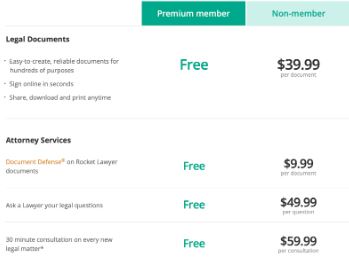Owning your own business is everything you could have imagined: you get to create something you love and then share it with people who love it as much as you do. You started your small business as an expert in your craft – perhaps it was baking, cheese making, or meat-aging. Or maybe you haven’t started your business yet and would like more guidance on what is involved or of potential pitfalls. You don’t need to be a legal expert, but you still should be prepared and aware of the legal infrastructure that could affect the way you run your store.
Legal mistakes can be expensive, and avoiding them isn’t always straight-forward. Legal resources are often confusing and expensive, and unless you have a knowledgeable family member or friend who is willing to give you pro-bono legal advice, you’re going to need to find some affordable resources. We have assembled a list of introductory resources and concepts.
Why do I need legal advice ?
“I didn’t know” won’t hold up in court
If you make a mistake when starting your small business and forget to get a certain type of mandated license or inspection, you could be in trouble. Unfortunately, you can’t plead ignorance as a legal defense. The law is not easy to understand – make sure you do some research and consult a lawyer if need be.
Your contracts should have nothing in common with Swiss Cheese!
Contracts should be reliable, deliberate and enforceable. Take care of who drafts them and how. Be wary of “handshake agreements” or oral contracts. There’s no room for loopholes or oversights, especially in a major contract. You don’t necessarily need a lawyer to draft or read every contract for you, but the ones integral to your business should be created by an expert. Disputes over contracts can come down exact wording, which could take into account things you might not have even thought twice about, like punctuation and capitalization. Some common words or phrases have legal definitions that may differ from what you intend. Always read agreements that are put in front of you. Ignoring the fine print is risky.
Attorneys Have the Experience You Don’t
Attorneys have seen businesses at every stage of their growth, from beginning ideation and concepts to becoming a major corporation. They know where things commonly go wrong, and what to do to protect against them. Solving legal problems can be costly, and often, your lawyer can identify them out before they happen. Prevention is better (and often cheaper) than a “cure”.
What do I need to become a small business ?
Federal Employment Identification Number (EIN)
An EIN is a unique 9-digit identification code for your business, assigned by the IRS for tax purposes. A business needs an EIN to become an LLC or hire employees. A sole proprietor can choose to use their social security number instead of an EIN, but the IRS recommends using an EIN regardless, to protect against identity theft. You can apply for an EIN online, by using IRS form SS-4, or by calling the IRS.
What legal structure should I choose?
There are several legal structures to chose from – each with their own pros and cons. For example, some might afford tax advantages while others may be more flexible or give greater protection of personal assets. You can read more about the advantages and disadvantages of different legal structures here.
Articles of Organization
If your business is to be established as an LLC, you will need articles of organization. These are different from articles of incorporation, which are needed to start a corporation. Requirements for your articles of organization vary from state to state, but most must include your business’ name and the name of whoever will oversee day-to-day business operations, most likely yourself.
Business License
A business license is a government permit that allows business to take place within the government’s jurisdiction. Business license requirements vary by location and type of business, so be sure to research if your specific business in your specific location requires a business license. If it does, you must apply to your city.
Depending on the specific location and purpose of your small business, you may need more licenses than listed above. Consult one of the legal resources listed below to make sure your business is properly formed.
Where do I find affordable legal resources ?
LegalZoom
LegalZoom is an online resource for people looking to start a business. Their free knowledge center includes everything you could need to know about starting different types of businesses, and their attorney directory can help you find an affordable, knowledgeable, verified attorney near you. They also have a large database of customizable legal forms. LegalZoom also offers pro services, including legal document review and website terms and conditions review. For a full list of their services, go to https://www.legalzoom.com/products-and-services.html.
Rocket Lawyer
Rocket Lawyer offers affordable legal consulting services. Some of the services they provide include legal document review, lawyer consultations, and legal question and answer services. Additionally, they have resources to help you form an LLC in every state, and an easy to use quiz to determine the right business structure for you. They also have document templates for everything you might need, from creating an application to copyrighting your unique ideas.

LegalShield
LegalShield provides small businesses all the legal resources they need, in the form of an on-demand lawyer. They offer a flat-rate monthly payment for legal consultation services, which include calls with your consultant, document review, and assistance with collections, if necessary. LegalShield can also assist with business startup, and has online services designed to make starting your small business easier.
FDA
The U.S. Food and Drug Administration can help you make sure your business is safely licensed to sell food. This includes informing you of any health inspections you must have, providing up-to-date information on the latest food product recalls, and ensuring your products meet food product labeling requirements.
Owning a small business can be as challenging as it is rewarding. To reach your end goal and get your products in the hands of your customers, you first need to establish yourself as a business and make sure you are correctly licensed to sell at your location.
You also have to make sure your business is properly insured. It’s important to consult a legal professional to make sure your business is properly established. Legal resources can be costly, but free and affordable resources are available online. Once you get all this done, however, you can start doing what you really want: selling and marketing your goods.
Reach out to Mercato with any questions or to find out more about signing up for their online marketplace.
This article is not intended as legal advice nor to replace seeking legal advice.








